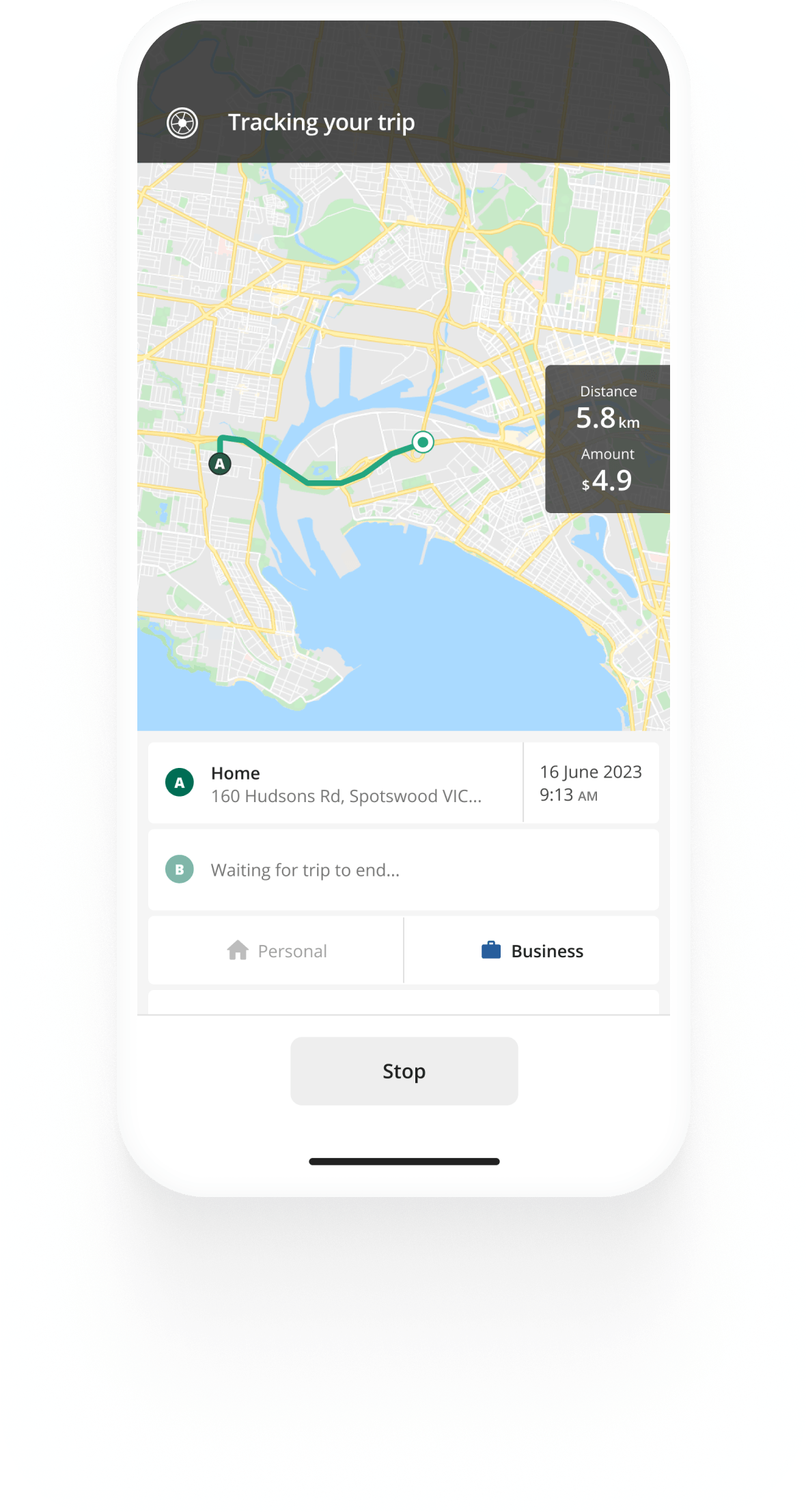Track mileage automatically
Get startedCarpooling
Carpooling for work is more than just sharing rides—it's a practical transportation solution for many. So, next time you consider your daily commute, think about the positive impact carpooling can have on your work-life balance, your wallet, and the environment.
What is carpooling?
Carpooling, also known as ride-sharing, is the practice of sharing a vehicle with others who have similar commutes or destinations. It involves multiple individuals traveling together in a single vehicle, typically to and from work or a shared location. Carpooling is a sustainable transportation option that promotes efficiency, reduces traffic congestion, and saves money for all participants.
Using your car for traveling for work-related tasks? Get the Driversnote mileage tracker and maximize your mileage reimbursement.


Kilometre tracking made easy
Trusted by millions of drivers
Automate your logbook Automate your logbook

Automatic mileage tracking and ATO-compliant reporting.
Get started for free Get started for freeHow does carpooling work?
Coordination and organization
Carpooling typically involves forming a group of individuals who live or work in close proximity to each other. Participants collaborate to create a carpooling schedule, which outlines the pickup and drop-off points, departure times, and any other necessary arrangements.
Sharing rides
In a carpool, each participant drives their vehicle, distributing the responsibility among the group. Depending on the arrangement, carpoolers may rotate driving duties daily, weekly, or in any agreed-upon pattern. By sharing rides, carpoolers can reduce the number of vehicles on the road, leading to less traffic congestion and a smaller carbon footprint.
Sharing costs
One of the significant advantages of carpooling is cost sharing. All involved contribute to the expenses associated with the commute, such as fuel costs, tolls, and parking fees. This collaboration significantly reduces individual transportation expenses and creates savings for everyone involved.
Benefits of carpooling for work
Time and stress savings
Carpooling can alleviate the stress and frustration of commuting alone in heavy traffic every day. By sharing the ride, you can take advantage of carpool lanes or express routes, which often result in faster and more efficient travel. Additionally, carpooling allows you to relax, engage in conversations, or even use the time productively if you wish to catch up on your emails.
Cost savings
Carpooling offers significant cost savings for everybody involved. Sharing the expenses of fuel, tolls, and parking fees considerably reduces individual commuting costs. These savings are especially valuable if you have long commutes or high fuel prices in your area.
Environmental sustainability
Reducing the number of cars on the road through carpooling directly contributes to environmental sustainability. Carpooling reduces air pollution, greenhouse gas emissions, and the overall carbon footprint associated with transportation. By choosing to carpool for work, you make a positive impact on the environment and promote a cleaner and greener future.
Building connections
Carpooling provides an opportunity to build connections and foster social interactions with fellow commuters. Conversations during the commute can create a sense of community, enhance networking opportunities, and even lead to new friendships among colleagues or neighbors.
FAQ

Tired of logging mileage by hand?
Effortless. ATO-compliant. Liberating.
Related posts
ATO Mileage Guide
25 June 2024 - 5 min read
Learn about the rules of reimbursing employees for their car expenses or deducting expenses as an employee or self-employed individual.
Guide to Small Business Tax Deductions
24 April 2025 - 5 min read
Discover the most common small business tax deductions and best practices to ensure your business is tax-efficient.
Company Car Tax Benefits
24 April 2025 - 5 min read
Discover what tax deductions you can claim when buying or leasing a car for your company, and which way of acquiring it is more profitable.


